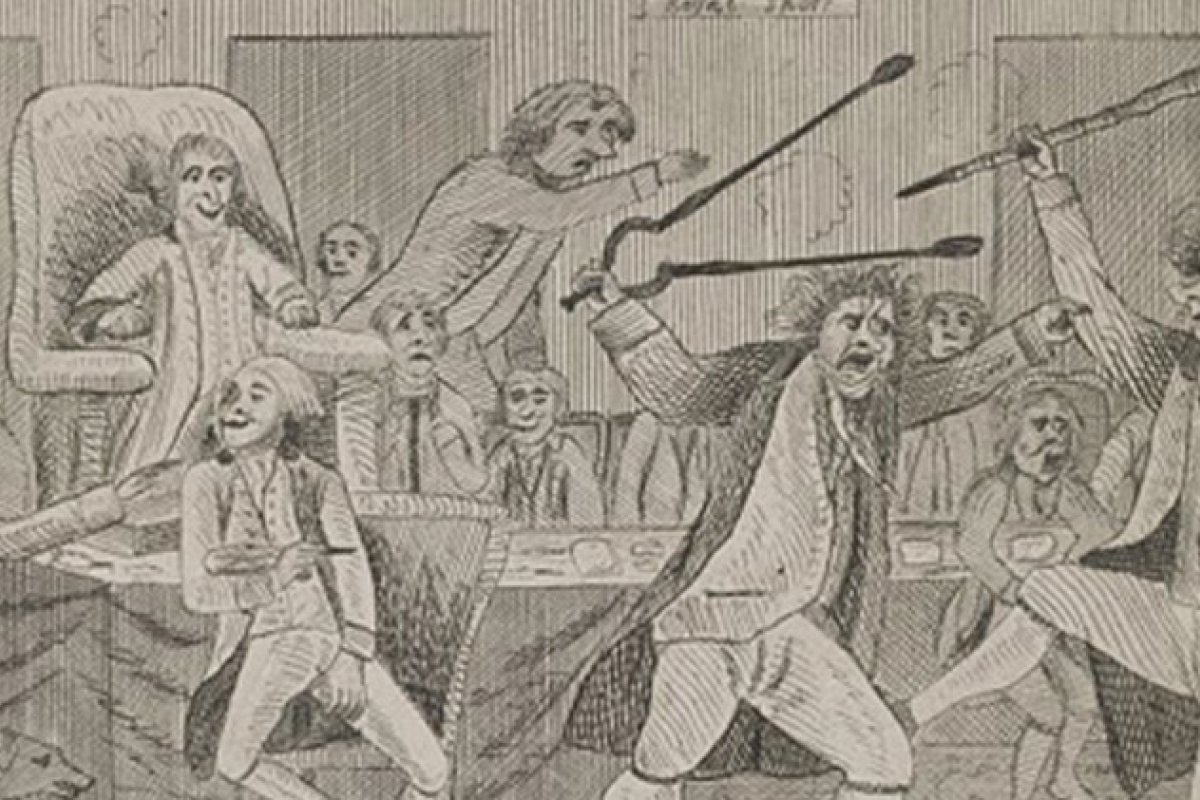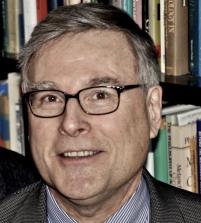
Party On, America?
The concept of loyalty offers hope for our democracy—but only a loyalty that transcends party spirit
§1
While votes were still being counted, assessments of religion in the election were in. The conclusion, wrote Jennifer Ruben, is that “White evangelical Protestants are the backbone of the GOP, but their geographic concentration and population decline mean Republicans are living on borrowed time.” Granting geographic, demographic, and economic realities that drive division, these alone are insufficient as explanations. Consider the sentiment that vexes many: “I just can’t understand how 70+ million people voted for Trump.” Change the name and hear the same vexation about Biden.
We’re a polarized nation, as it is usually put. But something more dangerous is being played out. Clashing loyalties feed what the Enlightenment thinkers would call ‘party spirit,’ an overly zealous commitment to one’s group and its causes, that threatens public peace. George Washington in a draft of his Final Address wrote, “it is safe to assert that the conflicts of popular factions are the chief, if not the only, inlets of usurpation and tyranny.” With a President who contests elections egged on by loyal supporters, and others claiming victory for their party, George Washington’s worry remains on point. In this situation, Josiah Royce’s thoughts about loyalty are, I think, politically, morally, and religiously illuminating.
Now faded from public discourse, William James once said that Harvard University would be remembered as the place where Josiah Royce (1855-1916) taught. Martin Luther King, Jr., gained the idea of the ‘Beloved Community’ from Royce and put it to work on social and racial justice (which Royce did not explicitly do). Theologian H. Richard Niebuhr, brother of Reinhold, drew on Royce to speak of radically monotheistic faith as trust and loyalty in a center of value that transcends every other object of devotion. While I am not a Roycean or even a scholar of his works, his philosophy of loyalty is worth probing. It helps to illuminate our current situation in ways that demographics, economics, and geography never will.
§2
Loyalty, Royce tells us, is a kind of service of self to a cause or ideal. It constitutes the self as a self. More profoundly, loyalty, he wrote, “is the Will to Believe in something eternal, and to express that belief in the practical life of a human being.”[1] Of course, the idea of the “eternal” seems quaint in an age shaped by the theory of relativity, the acids of history, the wild diversity of cultures and religions, and philosophies of finitude. But Royce’s thought is good framework for understanding ‘party spirit’ and the millions of voters who disagree with each other’s convictions. We’ll see that “eternity” is the easy part to grasp. The trouble is the demand to express it in our actual lives.
Consider loyalty in your life: friendship, marriage, professional convictions, dedication to one’s grandchildren, and membership in (say) a Church, Synagogue, Temple, or bowling league. Imagine a life without any abiding ties to others or dedication to ideals. What could that possibly mean for a human life? Human life is driven by loves and loyalties. Destroy a person’s loyalty and you destroy the person. That’s the Christian nationalist’s fear, but so too those dedicated to social justice for all. I do have misgivings about the idea of some abstract center of value devoid of real content, a kind of religious and moral lowest common denominator. But I certainly do not doubt the place of loyalty in human life.
Royce doesn’t argue that life demands one dominant and abstract loyalty; he only claims that what we actually admire in another person’s life is her or his loyalty. The concert pianist dedicates her life to music and we reverence her dedication; so, too, a father tending to his child, or the religious mystic in solitude. If we lift our sights from our particular loyalties, we see that, as an ideal, we treasure the fact of loyalty in others. And we do so because any recognizable human life is only possible with some loyalties. The wonderful, if conflict ridden, diversity of human cultures and religions subsist in loyalties. We ought to acknowledge the place of loyalty in others’ lives, even if we might defer from the object(s) of their loyalty. Their loyalty constitutes their lives and their humanity. But loyalties not only unite but also divide people. What then?
Lifting our sights even higher, we realize that we have a loyalty to loyalty itself, as Royce put it. We treasure not just the specific objects of particular loyalties (sonatas; children; religious traditions), but dedication, loyalty, itself. The object of that loyalty to loyalty itself is ‘beyond’ any specific object of loyalty. It is, to use Royce’s idealist language, ‘eternal.’ But that is not some empty abstraction. It has to do with the tenor of our moral and non-moral relations to others. And it is, he claims, religious as well. Religion, he says, “is the interpretation both of the eternal and of the spirit of loyalty through emotion, and through a fitting activity of the imagination.”[2] Religions, packed with beliefs and practices, suffuse our lives insofar as we are creatures of emotion, imagination, and loyalty.
But note: if we remain just within the realm of our particular loyalties and their objects, conflicts will arise, personhood will be denied, and religion lost. Someone’s dedication to MAGA collides with work for police reform; another’s worry about the loss of national identity conflicts with the advocate for diversity. And notice: in order to sow discord in society, feed ‘party spirit,’ and also usurp power, one merely needs to demand that no one ascend to a loyalty to loyalty itself and thus to self-critical religion. Party spirit insists on loyalty to the particular object of dedication—or a particular person—and contests and cheapens other loyalties and the people who hold them. That has been the agenda of Trumpism, but it can happen, sadly, to anyone in the throes of conflict. Serve this ‘cause’ or that ‘cause,’ but never ascend to the “eternal,” to a loyalty to loyalty itself. Party on, America!
§3
In truth, we find ourselves in a double bind: we ought to admire other people’s loyalty and our own as well; yet we should criticize loyalties, including our own, that shackle anyone only to the objects of specific loyalties and so confound loyalty to loyalty itself. On Roycean terms, this is about a form of moral and religious criticism that can help to answer our vexing question and help to quiet party spirit. It shows us that our loyalties need not enslave us, but can be the avenue to respect of others and even inform one’s religious convictions. We cannot allow the dehumanizing acts of others fed by party spirit to somehow justify our own immoral and demonizing actions!
How then to bring that loyalty to loyalty into actual life? Remember, that is the real practical question for human persons. Perhaps at this moment in public life we need humble self-scrutiny about our loyalties, and in doing so we at least acknowledge a critical ideal under which we as citizens live. President Washington, I think, would agree.
[1] Josiah Royce, The Philosophy of Loyalty in The Basic Writings of Josiah Royce vol. 2 (The University of Chicago Press, 1969): 997.
[2] Royce, The Philosophy of Loyalty, 1005.
Image: "Congressional Pugilists," 1798. Courtesy of History, Art, and Archives, U.S. House of Representatives.
Sightings is edited by Daniel Owings, a PhD Candidate in Theology at the Divinity School. Sign up here to receive Sightings via email. You can also follow us on Facebook and Twitter. The views and opinions expressed in this article are those of the author and do not necessarily reflect the position of the Marty Center or its editor.


